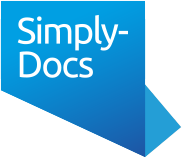The secret of success in business is not one that can be taught. Instead it is one that comes from within. Or at least that was the message from Mary Portas, the retail expert and TV star who hosted this years Small Business Showcase Awards.
When asked about the most important aspect of running a small business, Portas said: “Follow your instincts. Often we underestimate that… The best things in my life have happened where I’ve followed my instincts.”
These suggestions could be both a blessing and a curse, allowing individuals to have far more control over their own destiny, but far less help on hand to guide them to the right conclusion. However, whilst certain signs may be saying to go one way, if your gut is telling you to do something different, it will indeed be important to trust those instincts over the more logical nature of the brain.
In business, what will set you apart from a pack that all does the same thing is ignoring the route that everyone else will take and opting instead to follow what your intuition tells you. For SMEs, it is a dog eat dog world, and those only following logical paths formulated by ruminating on the pros and cons of a given issue are likely to fall behind. Obviously, there will be many times when such a cerebral approach is sensible, but if your gut is screaming at you to do something else, this deviation from logic could well be what makes you.
How do you know if instinct is right?
Another top tip from Portas is to employ “really great people.” This will help you to understand if your instincts are right. Guiding from the head and not the gut will lead to many anodyne decisions that see you stagnating early and never reaching your full potential. Leading from the gut when it overrules the brain is what will push you ever further and allow you to achieve your goals.
By making sure that every member of your team is excellent at their given role, you will have individuals on hand to help guide your decision-making process. When making decisions about things you are not an expert on, having the opinions of those you can trust will be vital, whilst bouncing ideas off the same people when your instincts are telling you to make a certain decision will help you to see if that decision will indeed be the right move or is just a temporary blip of insanity.
Going your own way
The secret to success is therefore likely to be all about ignoring what seems to make sense and following what you believe – just so long as every other member of your trusted team isn’t screaming warnings against it. Here at Simply Docs, we are aware just how important it is to do things your own way rather than enlisting the help of so-called experts who will not have the same financial or emotional investment in what you are trying to achieve. This is why we offer top-class business templates to help you create business documentation that suits your own unique approach to business, and not documents that so-called outside experts will end up interfering with.
